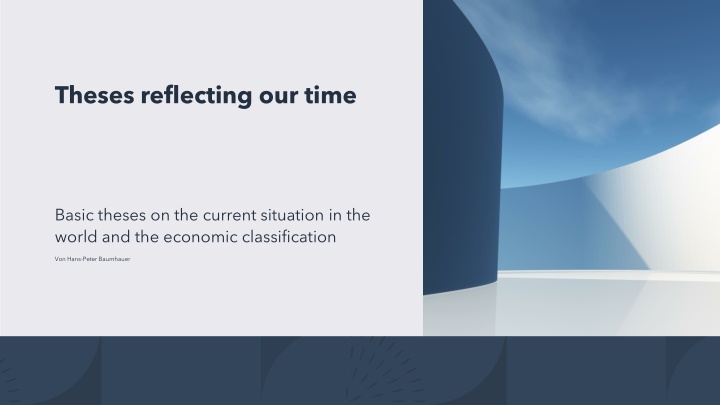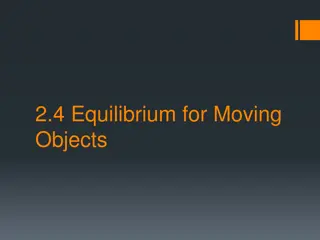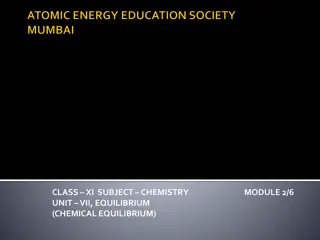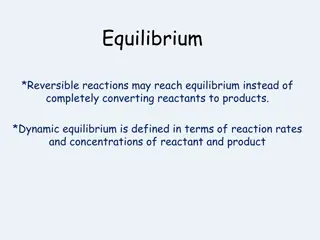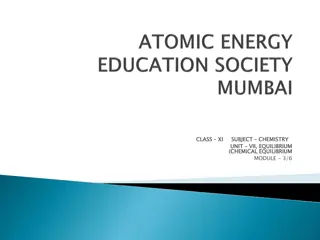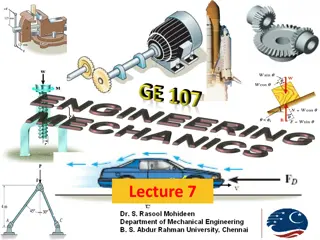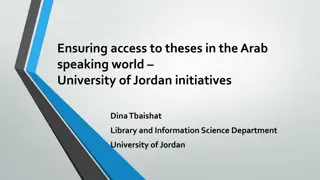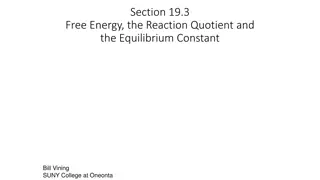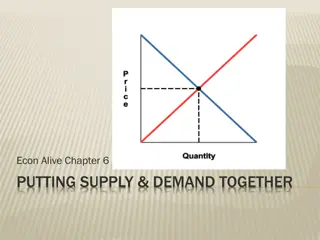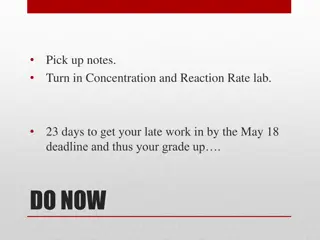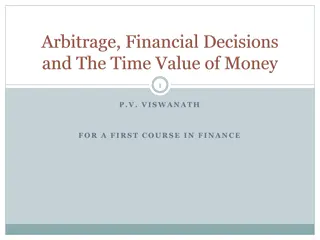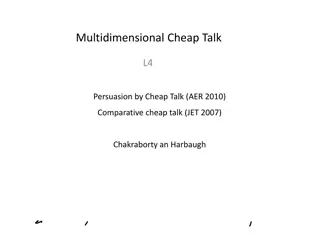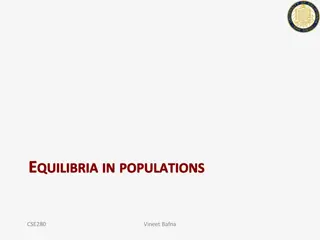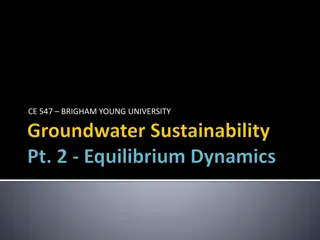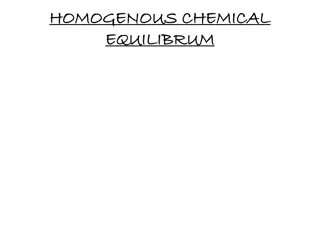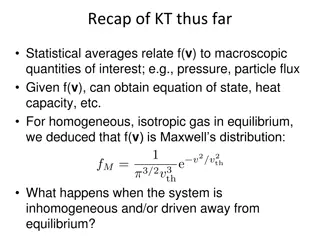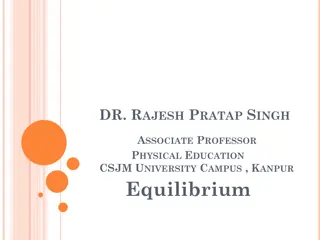Theses Reflecting Our Time: Human Relationship Structures and the Dynamics of Fear and Equilibrium
The thesis explores the central role of human beings in relationship structures, the processing of fear, and the concept of equilibrium in societal and personal life. It delves into the existential aspects of borders, the significance of crossing boundaries, and the impact of exponential effects when equilibrium ranges are exceeded. The discussion encompasses the interplay between relationships, fear, balance, and boundary areas, highlighting the intricate dynamics of human existence and cultural identity.
Download Presentation

Please find below an Image/Link to download the presentation.
The content on the website is provided AS IS for your information and personal use only. It may not be sold, licensed, or shared on other websites without obtaining consent from the author.If you encounter any issues during the download, it is possible that the publisher has removed the file from their server.
You are allowed to download the files provided on this website for personal or commercial use, subject to the condition that they are used lawfully. All files are the property of their respective owners.
The content on the website is provided AS IS for your information and personal use only. It may not be sold, licensed, or shared on other websites without obtaining consent from the author.
E N D
Presentation Transcript
Theses reflecting our time Basic theses on the current situation in the world and the economic classification Von Hans-Peter Baumhauer
The human being is at the centre of consideration and is therefore the basis of all consideration Everything is relationship. Thinking is the linking of words and the meaningful production of references. In brain research, mental processes are described as materialization in neuronal circuits. The human being is relationship. In self-assurance, it is a relationship with oneself and at the same time a relationship with others and others. A highly complex system of networks of relationships that constantly change and evolve over time. Relationship structures are therefore susceptible to disruption and require care (Latin: "cultus"). Culture thus consists of relationship structures that are cultivated. The tennung of relationship is a constant danger and is the source of fear. The separation from man's own body in his relationship to himself can be called dying as a progressive process and death as a result. Every separation, even mental or emotional separation, etc., is an experience of death in all its degrees. Death as a visualization of separation is fear. The emergence of fear is inevitably given by life and its threat of separation and its escalation point, death. The level of anxiety is a decisive factor for social and personal life. The spiritual processing of death can be seen as the actual explanation of humanity's cultural achievements. The processing of fear is the focus here. The overarching institutions of culture can give stability and identity to the individual as well as to society, whereby religions usually fulfil the outstanding functions here. The border is an existential destination. It can determine the concretization of separation, but also the function of demarcation and thus intellectual and cultural identity. In every respect, the relationship to the border is an existential destination, even if it is very vague (e.g. tolerance). Normality is not a fixed definition, but a social agreement on a frequency distribution, which usually ends at the limiting edges with a blurring of these boundaries. The logical relational function of these fuzzy edges is a "to"with a reference point: too much, too little, too big, too small, etc. and, in relation to the socially recognized center of the accumulation function, causes imbalances at its edges (e.g. inferiority complexes, etc.). Equilibrium needs and defines itself in relation to its opposite. For example: The constant "imbalance" of systolic and diastolic blood pressure and its balance in the heartbeat is the physical function of the human being that keeps him alive. The imbalance between supply and demand is supposed to be balanced out in the market by the price. Diverse equilibrium functions shape our society as well as our individual lives.
Equilibrium areas are essential. If equilibrium ranges are significantly exceeded at often undefined boundaries, this usually has exponential effects in relation to the degree to which they are exceeded. Most people think and feel in linear developments, which usually do not exist in this way. Examples: "too much" anxiety: most mental illnesses are ultimately anxiety disorders. Temperature that is too high: Even a deviation in body temperature from normally 37 from 10% to over 40 is critical and leads to death if it continues to rise above 42 . Something similar is true of climate change. At the limit of a global warming of "too much" of 1.5 , one reaches a critical range that has catastrophic consequences if it is exceeded further. It's only when you've crossed the boundaries that you know more precisely where they were and what the effects are. The border and its crossing are of central importance. The relationship structures in these areas are usually no longer linear, but exponential, which is also part of the determination of boundary areas. This applies to both negative and positive developments. Crossing boundaries often leads to erratic developments. The pioneer stands in this borderline area with his fear-overcoming activity. For example, discoveries and inventions, research and application, have broken the boundaries of development possibilities and led to leaps and bounds. Fear is the essential instrument of power. In addition to the manifold (also positive) functions of fear, its generation is regulated in every culture and in every state by rules of punishment and the resulting separation from society in gradations from traffic tickets to the death penalty (as separation from society and oneself). There are studies that show that an economy develops significantly worse with "too much" fear, which of course also has the causes in the individual himself. Fear is a function of the boundary. The most important relationship structure is love. Love is the positive embodiment of any relationship structure. Love, then, has the function of directing the structure of relationships towards the unfolding and elevation of life for both the individual and society. In contrast, indifference in the transition to hatred is the shaping of relationships that goes to the point of destruction and damages the structure of the relationship. Love is the highest form of relationship and is as complex, unfinished and difficult as the human being himself. For thousands of years, this relational structure has been at the center of human life through thinking, acting, and feeling. In extreme cases, love also dissolves the boundaries of one's own individuality into a larger context of a relationship structure up to the abandonment of one's own existence in death, insofar as it can thereby bring about the development and increase or protection of life. Examples: the self- sacrificing devotion of parents to the soldiers of Ukraine who voluntarily go into battle. There is no freedom from, but only freedom in the structure of the relationship. Since man himself is this relational structure, he cannot detach himself from it. He can, however, shape these structures in complete freedom and, for example, in murder and manslaughter, also turn against the development of life. The path from egoistic pubescent selfishness to mature love is as complicated and difficult as life itself. The following main theses can be put forward:
There is no higher rationality than that of love! Everything that remains below this hard-to-realize claim is suboptimal for the happiness of the individual as well as that of the community. There is nothing that gives more freedom and exerts less coercion than love. The last sentence exposes the inner structure of love. Thus, it provides an ultimate justification for a political, social and economic system, which implies the highest possible freedom at all private and state levels of a community. However, only the freedom bound back in love and shaped by it is the freedom of the many. Otherwise, freedom becomes detached from its existential reference and in its extreme form it degenerates into the ruthless freedom of the individual, who sets it against the freedom of the other and is thus criminal in its tendency. Since there is no deeper level of justification than that of man himself, this foundation is no longer questionable. It is therefore no coincidence that Western democracies are more successful at almost every level than totalitarian, autocratic systems, which essentially build their power on fear, even though democracies also have significant deficits in all sorts of areas. This conceptual basis will now be further elaborated:
When contracting parties agree on a contract, it is sometimes done out of an attitude that aims to: Attitude 1: Give as little as possible and take as much as possible. There is also the opposite attitude: Attitude 2: Take as little as possible and give as much as possible. Both attitudes are limited by the respective possibilities and in the negotiation of a balance of interests. The possibilities are usually characterized by costs plus profit markup. Therefore, at first glance, there seem to be no differences on the outside and the exchange of services remains in the range that we previously called normality. Nevertheless, the difference is large and especially in 2022 it is abundantly clear: The first attitude tends to be criminal, insofar as it leaves the realm of normality (escalation point: to take everything and give nothing) and forms the core of "Western" economic theory to this day, which assumes equally strong contractual partners and their compensation. The second attitude tends to be oriented towards the realization of the previously discussed relationship structure of love and at first appears illusory (two points of escalation: positive: gift and negative: lack of self-assertion to the point of ruin). Nevertheless: It is the attitude towards the children that is naturally given to man in his social relations as father and mother that has exactly this goal and is implemented billions of times in this world every day. In other words, an attitude from which as much as possible is given and as little as possible is demanded for oneself. The second attitude is therefore not a rare phenomenon of illusory crackpots, but is deeply rooted in human nature and culture, which can also be found in other (often unpaid) commitment in this world. The second attitude represents the difficult paradox that man should make his life a happy and fulfilled life precisely by relativizing his own life (to the point of abandonment).
The economic theory of the neoliberal and neoclassical construct of a market participant who pursues only and exclusively his egoism, which is still widely accepted today, ignores all other aspects in the relationship, such as justice, nature and power. Every theory is a simplification of reality and the dissolution of economic processes into mathematically formal quantifiability and their processing in computer models had and still has great advantages. However, this fostered the belief that the "market of egoisms" reflected in the price the correct total costs, including the entrepreneur's wages of product production. The limitation and concentration on the quantifiability of exclusively selfish economic agents had ignored the qualitative factors. This became even more problematic when the predominantly nationally organized markets were increasingly opened up in the middle of the last century in order to leverage the so-called comparative cost advantages in the same quantitative view. Initially, the integration of large economies into an emerging global economy brought great benefits and advancements to many market players in the world. Globalization was driven further when the marginal cost of trade could be dynamically reduced:
The reduction of transaction costs in national and international exchanges accelerated development, especially in the following key areas: Exchange of news, knowledge and ideas (e.g. internet, e-mails etc./ cost of the stagecoach to an e-mail!) Transaction costs of goods (e.g. reduction of freight costs through containerization, etc.) while at the same time lowering the unit cost limit in mass production through division of labor in other countries Financial transactions, money (networked banks, SWIFT, etc.), transaction costs for transfers and currency exchange are increasingly done digitally in seconds at the lowest cost People, e.g. transport costs, fell more and more, mass tourism became possible, workers became mobile worldwide, etc. However, the form of globalization and cost reduction through international division of labor as well as production outsourcing was incomplete, as it did not price in the quality of business relationships from the previous quantitative models. This leads to another thesis:
We need not less, but much more globalization! The moral hazard described earlier in the opposing attitudes is now abundantly evident in Russia's war against the Western world. The "corruption of advantage", which resulted from cheap flows of goods, including raw materials such as gas, oil, rare earths, etc., especially from China and Russia, paralyzed the will to perceive: People also looked the other way at horrific human rights violations! The cost of the moral hazard - as well as derived from it - the ruthless destruction of the environment and e.g. the social dumping etc. are high costs, but they were not priced into world trade and still are not today. The superior ability ascribed to capitalism to transform costs in the exchange of services into correct pricing must be expanded, since, for example, the economic costs of production in terms of their environmental harmfulness have been outsourced to the global economies without recalculation. Now we are coming up against massive limits, which, as environmental damage and disasters, are causing considerable movement to the limits of the habitability of land and the use of nature. The previously hidden costs are now becoming clearer and clearer and must be transferred into international relationship structures that recalculate these costs. Approaches to this have already been found in CO2 pricing and An exclusive climate club that imposes the standards on its members and adds tariff surcharges to the club's "foreign trade". It is to be hoped that this "club" will also include the other topics highlighted here.
Theses on globalization: Without globalization, we cannot solve today's problems, but it urgently needs to be expanded to include two components: 1. The return to the essence of the human being described here and the mature attitude of economic activity that can be derived from it must be extended globally, since the opportunity costs of adolescent selfishness increase exponentially faster than any benefit that can be derived from it. This results in the indispensable need to promote social market economies in liberal societies, the participation of as many people as possible in economic success, and the massive suppression of totalitarian autocracies and their fear-based systems of power, which are usually associated with considerable state crime and, as in the case of China and Russia, about espionage, corruption of all kinds, cyber attacks, influencing elections and politics, as well as contract killings and construction. harmful criminal structures is also spreading abroad. Continuing to "look the other way" against good profits cannot be a way out, as they are poisoned profits with disproportionately high costs that lead to very high losses in the overall account. In any case, sustainability is not a given. 2. The actual costs of the products must finally be correctly calculated and adjusted, so that the costs (e.g. environmental pollution) that have so far been outsourced to the global economy without being recalculated, as well as qualitative factors, are quantitatively recalculated into the business costs of the companies. Likewise, the qualitative factors of a business relationship will have to be evaluated quantitatively. The major Western economies can increasingly enforce this through their market power through individualized tariffs and norms, rather than continuing to be part of a criminal tendency. So far, there has been a lack of the will to perceive, but this criminal tendency is now very openly evident in the implementation and it is hardly possible to look the other way comfortably.
Limits to growth: More than 200 years ago, around 1800, the eminent economic theorist Thomas Robert Malthus (1766-1834) denied the carrying capacity for a much higher population growth on earth on the basis of what he claimed to be a decreasing marginal utility of land yield. The economic theorist William Godwin (1756-1836), ten years his senior, had fueled the debate because he saw no limits to the growth of the human population. It should be noted that around 1800 the world's population exceeded 1 billion people (even before Malthus, there were mainly Italian economic theorists who advocated similar theses). It was not until 1700 that population growth accelerated considerably, and for the first time the doubling time of the world's population is in the range of centuries rather than millennia. Around the year 1930, about 130 years later, the world population was about 2 billion and in just 45 years it doubled again in 1975 to 4 billion people. In 2022, i.e. another 47 years later, there will be another doubling to around 8 billion people. An exploding dynamic, which has now managed to double in decades and is expected to flatten out at about 10 billion people. Despite the sharp increase, a large part of the world's population could be integrated into the globalized economy, so that many improvements have been made in many areas, but many dramatic problems have also arisen. At the same time, it must be noted that the problems of climate change and pollution are demographically derivable chains of problems that need to be solved urgently.
Demographic chains of problems: It is not the absolute growth of the world population, but the strong growth of the class consuming the world population that is the decisive factor, and this consuming layer is getting bigger and bigger, which is first of all progress, because more and more people are getting better living conditions and the world economy is growing. This results in an exponential increase due to two factors: More and more additional millions of people are consuming an ever-increasing number of times more than before. Thus, the increase in resource consumption from production and consumption and the associated environmental pollution (CO2, waste, air, etc.) is a multiplication along the exponentially increasing population explosion as described above. In view of the enormous gravity of cultural traditions and previous failures, it is unfortunately doubtful whether the cultural transformation and orientation towards a world community in which the long-term and common interests of survival sufficiently suppress short-term selfish interests. The core thesis to be put forward here is that the survival of humanity is not only a question of nature and its technical mastery, but essentially a question of culture. Therefore, not only quantitative factors, but above all the underlying qualitative factors (i.e. the behaviors coming from culture on many different levels and their change) become the influencing variables that also determine the survival of humanity today. Example: The birth rate decreases as a result of liberalization, the emancipation of women and an increasing prosperity of a people, which can also be attributed to the biographical opportunity costs (computer scientist: annual earnings approx. 60,000 *30 years = 1.8 million approx. 390,000 for 3 children with a university degree against Bushwoman in Africa without earnings in the hope of supporting 3 children). Fertility combined with the oppression of women and the expansion of power is an issue in all world religions and totalitarian systems that stems from a time when there was a lack of people for war and work. Example: Erdogan promised in 2014 exemption from income tax to every working woman who has at least 3 children; Syria's ruler drove the population from about 4.5 million in 1960 to 23 million in 2012 (beginning of the crisis) through the most aggressive, pronatalist policy with the international peak of 7.6 children per woman, until (as before the French Revolution) due to crop failures and drought rural exodus to cities (1.5 million in the 2 years before) and there again the revolutionary potential unfolds, etc... Conclusion: The change of culture and the technological attempt (nature) to make the growth of rising world population groups "sustainable" must complement each other in order to get the world in a positive direction.
Limits of Knowledge: However, one of the main features of our time is also the accelerated crossing of borders. Historians estimate that until 1900, the knowledge of mankind doubled on average about every hundred years. Today, it only takes us about a year to do this. However, the speed of knowledge and information growth continues to increase exponentially. In 2016, researchers at IBM showed that developments such as artificial intelligence and the Internet of Things, which are about to become a breakthrough, will trigger a veritable explosion of information and knowledge in the very near future. Then it would no longer take years or even centuries for the collective knowledge of all people to double, but only eleven to twelve hours. So the ability to cope with negative developments and crises is also growing at an incredible speed! Shifting borders, in turn, sets other boundaries in motion! In relation to the total knowledge, the individual, in his specialization, knows less and less, more and more, and less and less. The verifiability and comprehensibility for the individual in relation to the overall knowledge reaches insurmountable limits. But what cannot be known as knowledge enlarges the realm of faith in many ways. Thus, culture and faith trust play an essential role here as well, the positive shaping of which can ultimately only be produced by an open and transparent society, and even there all kinds of conspiracy theories develop on the fringes of society. By lowering the transaction costs in worldwide communication (mobile phones, Internet), the controllability of the masses is restricted by totalitarian systems, whose supreme enemy remains free information and opinion-forming (Iran, China, Russia, etc.). Research and knowledge and the release of creativity have freedom as a basis for development and therefore totalitarian states will fall behind.
Boundaries of Identity and Mass: In der Masse schwinden die individuellen Grenzen des Menschen zu Gunsten einer bergreifenden Identit t. Since ancient times, there have been considerations about the properties of mass, and for example, Aristotle wrote: "although no individual can adequately attain the truth,.... but from the union of all results in something great of knowledge" and thus anticipates what today could be called "swarm intelligence". Today's communication options with the lowest transaction costs are enormous and make a great contribution to the humanization of this globalized world. Never before has an individual had such extensive personal communication possibilities in relation to the masses of which he himself is a part (e.g. social media). The individual, in his painful separation, abolishes his isolation in favor of the masses and finds himself in an overarching system of relationships that relieves him and assures him of community. However, it is precisely here that it is decided whether the individual can preserve and develop his freedom, or whether a totalitarian claim takes hold of him and oppresses him. The terrible seductions of the masses by e.g. fascism and communism in the last century have shown the vulnerability in the content of this central system of relations and have abused the positive concepts such as love of the fatherland, community, friendship, loyalty, etc. In order to rob the individual in the mass of his individuality in this way, a directed communication is needed that creates a superordinate communion in which he remains trapped and which at the same time prevents him from deviating through the usual means of power (spreading fear). Thus, communication no longer serves to find the truth, as Aristotle meant, but the truth is corrupted into an official line, a question of loyalty without independent objectivity. The focus here is not on the development of the individual, but on the purposes of a totalitarian and autocratic regime. One of Trump's greatest crimes was to declare the truth to be his private matter, thus withdrawing it from the public discourse through the overarching loyalty of his supporters, and to exclude anything other than "fake news", i.e. lies, and thus to deceive and lie to his own supporters. To turn open communication into one-sided propaganda, to censor the press and to bring it into line, are the first steps towards autocracy, mostly with totalitarian claims, which is implemented in China and Russia, but also in Hungary, Turkey, etc. In order to further immunize and shield this communication, enemy images are built up or wars are started, thus strengthening the identity of the masses in the demarcation. However, these structures are universally valid and they also apply to the attacked Ukraine, which further strengthens its own identity in the military demarcation. Never before has a president used communication so clearly and distinctly to establish a worldwide communion and understood its value as the Ukrainian one. The most important and heaviest "bomb" that Ukraine must and should detonate in Russia in cooperation with the "West" is the "information and communication bomb". Richard Holebrook, Special Envoy to Afghanistan under Obama, agreed with me in the conversations I had with him that the cultural factors are becoming the decisive factors and he was unfortunately unable to persuade Obama to turn away from the military-dominated policy even in public criticism, and therefore the mission in Afghanistan had to fail. As previously described, however, man cannot detach himself from his basic relationship structures so easily and therefore it is a question of truthful and open communication until "the Russians" sometimes have an identity crisis resulting from their "human substance", which already seems to be reflected in a bad morale. Also on 18.10.1813 a whole army (Saxony) changed sides against Napoleon in the Battle of the Nations. In some cases, a surrender without a fight takes place again and again. Sensibly, without fear, it is necessary to support Ukraine in its defense with all weapons, without any hesitation, to the maximum and as quickly as possible. However, a profound victory can lie in the establishment and expansion of the "community" based on love and thus freedom, both in Ukraine and, through it, catalytically throughout the world. History repeats if we do not learn. Hitler repeats, but the never again was a wake up for a better world. Perhaps recognition and catalytic processes combine.
Boundaries of Identity, Migration and Global Citizenship: Many borders are in motion, and from the point of view of those who are facing such a border shift, it seems like an invasion, an encroachment or even an attack, a destructive influence that must provoke a backlash. Should or rather can one's own cultural identity be preserved in times of global communication and the penetration of new ideas and realities of life, or is it subject to influences in which it has to adapt and transform? For example, is the culture of oppression of women worth preserving? Nowhere else in the world are the limits of social and political constraints in relation to one's own identity so strongly discussed and fought out as in the Islamic world (e.g. headscarf in Iran, discrimination against women in Afghanistan, circumcision of women in Egypt, etc.) and often provokes dramatic and aggressive reactions, up to and including terrorism against the origin of invading, invading, harmful and insulting communication, i.e. the "West". But even this "West" has fought for these borders for centuries in a never-ending discourse up to wars and persecutions. The opening of the borders for women to participate in the labour market without the consent of men was only changed in the Civil Code of the Federal Republic of Germany in 1977 and in Switzerland in 1990 with the last canton. A thirty-year war over religious freedom tore apart what was then the European world from 1618 to 1638. "Purity" is one of the most dangerous concepts of thought and one of the culmination points of separation. Examples: The pure doctrine (wars of religion), but also the purity of the race up to the delusional persecution and extermination of Jews, owe their essential origin to this one word. In religion and culture, the purity of women also results in a dramatic, often delusional exclusion and oppression of women. Women must be protected and segregated in order to preserve purity: from prying eyes (burqa), from foreign influences (prohibition of work and education), etc. An emancipatory and tolerant world culture is also the elimination of injustice and strife. Without an inclusive "world culture" we will not be able to master the global challenges, in which the "rationality of love", which gives the egoism that cannot be eliminated but always present, the right tendency in relativizing oneself in a free society. Therefore, not only quantitative factors, but above all the underlying qualitative factors (i.e. the behaviors coming from culture on many different levels and their change) become the influencing variables that also and very significantly determine the survival of humanity today. But here, too, sharp demarcation is needed: "ultra posse, nemo obligatur" (no one can be obliged beyond ability) has been formulated as a Roman principle since about 100 n.Ch. There must be no opening of all borders for everything and everyone, but the "West" must develop its liberal culture in sharp demarcation and become stronger. Otherwise, it runs the risk of becoming weaker and unstable. Cultural infiltration on the one hand, and the migration of citizens into illiberal currents that feel too threatened in their identity, on the other, are highly counterproductive and are even deliberately sought as a hybrid war by "strategists" like Putin. Criminal powers have so far been on the rise in all forms and at all levels with cyber fraud, drugs, money laundering, etc., and also through targeted destabilization, such as by causing migration flows (economically, the business of smugglers is already more important than drug trafficking as a new criminal branch of business). Therefore, migration to the West must be limited and directed. The morally strong (in the context described here) must remain strong and the weak must become stronger, which cannot be done by leveling all differences, but by the exact opposite: The differences must be made abundantly clear by clear and sharp demarcations. Other countries and their populations must seek to emulate the positive. The current crises have arisen precisely because there have been no limits to criminal tendencies in the "corruption of the many advantages" described here.
Crime and Freedom It is clear that the inner structure of freedom is love. The phrase "Love and do what you want" was coined by Augustine, Christian bishop (354- 430 n.Ch). A deep historical tradition sees freedom as so inescapably integrated into the relational structure I depict, "to give as much as possible and take as little as possible." Action is therefore not simply free, but inseparably linked to the basic existential structure of the human being. In economic theory, based on Adam Smith's (1723-1790) "invisible hand", in which self-interest promotes the common good, this freedom is perverted more and more into a freedom that becomes more and more independent and detached from its existential rootedness and thus becomes a detached and abstract ideology: the market, freed from all shackles and regulations, thus creates in the competition of the participants, the best added value for all. Radical selfishness and greed are to become the drivers of greater prosperity. Two Nobel laureates, Milton Friedmann (1912-2006, 1976 Nobel Prize in Economics; Chicago) and Friedrich Hayek (1899-1992, 1974 Nobel Prize in Economics, Freiburg, Chicago School) stand for these basic ideas of neoliberalism, the theory that is still prevalent today. The stronger prevails and becomes stronger and stronger, thus promoting growth and prosperity. The freedom of the individual to act in this way pushes back the freedom of the many who lose and limits their development. As already pointed out, the economically powerful tend to promote these basic criminal ideas. They are striving for even more power, monopolies and the ruthless elimination of competition. Profit maximization becomes a detached goal. It is increasingly the freedom of the few, the economically stronger, who are changing the rules of the game in their favor due to their greater influence and are causing more and more deregulation. Especially under the Republican President Reagan (president from 1981-1989) an unprecedented deregulation set in (about 50% of all "federal regulations" were abolished; Reagonomics). Likewise, an ever-increasing opposition to the state is being built up, resulting in massive tax cuts and cuts in the state budget (especially social spending). While there is an enormous redistribution to the rich and powerful, during his term of office the previously low national debt is driven up to three times: an additional redistribution and the beginning of a debt problem from which the USA has not recovered to this day. The deregulation of U.S. savings banks initiated by Reagan (1982) subsequently led to the collapse of many savings banks, with a loss to the taxpayer of USD 124 billion due to state guarantees. The damage caused by this tendency to criminal thinking is enormous and leads to escalating attempts at enrichment with pre-programmed collapses, such as in Germany the Neuer Markt (2002, damage approx. 200 billion ), the global financial crisis of 2009 (approx. 4 trillion USD only securities losses and further damage such as the skyrocketing unemployment rates worldwide, etc.).
From my point of view, crime is not understood in depth and, like the West, it has become part of it, in which we are happy to take advantage of cheap goods from China, cheap gas from Russia despite massive human rights violations and proven war crimes, etc. Such dependencies, however, are used to expand totalitarian power and/or the associated expansion of profits. Just as the drugs of the drug dealer, after initially innocent consumption, lead into the vortex of more and more bondage and enslavement, so we must free ourselves from dull guilelessness and the structures of crime must be better recognized in the sense of what has been said so far. What is not taken into account is that thinking is the central place where crime must be fought. However, it is part of the criminal strategy to massively influence thinking in order to take advantage of it. Targeted promotion of ideological schools of thought and abolition of freedom of the press (Orban, Putin, etc.) are such measures, for example. Even more massive are the twisting of positive concepts such as patriotism, loyalty, comradeship, etc. into a perversion through which the goals of the powerful are disguised at the expense of the many and their freedom, as for example under Hitler, Stalin, Putin, etc. Under Mr. Ackermann's leadership, the formerly reputable Deutsche Bank has been transformed into a criminogenic gambling den," says Wolfgang Hetzer (PhD in law and political science, was head of department at the European Anti-Fraud Office from 2002 to 2013). The abuse of economic power to maximize profits can also be observed in large and small emoluments. It is this thinking that the rich and powerful are entitled to further profit maximization in any case and should be strived for and implemented by all available means. Opportunities of any kind, such as legal predetermined breaking points in contracts, should be planned and implemented. The superior contractual partner can increase his feeling of superiority over the most expensive lawyers, who secure or legally defend his strategies for profit maximization on the backs of the weaker party - as far as possible. The interpretative framework of law and order is to be skilfully blurred in the sense of one's own goals and, under the guise of well-composed assertions, used in such a way that one's own advantage is secured and the weaker one is pushed further into a defensive position from which he can no longer escape. The fate of this world, in the global and in the very concrete individual processes of the individual, also depends on whether the caricature of freedom, which has long been trapped in wrong thinking, is continued in its criminal form and implementation. In this respect, the fate of the world depends to a large and small extent on the thinking of politicians, legislators, judges and prosecutors and whether we want to and can set out together on the path to a better world.
After the theses, the current topics will now be taken into account: The gross domestic product in US $ worldwide in 2020 is approximately 84,971,650,000,000 USD. The table shows numbers in millions of dollars (times 1,000,000): The economic power on the basis of the volume generated still lies predominantly in the hands of the "Western" democracies. In this respect, Russia is economically a dwarf in relation to the Western world, with only about 3% share in proportion. However, China is also far below the economic strength of the Western world, at around 32%, and is very highly dependent on the latter as its "largest customer". The economic power of the "Western world" is thus three times greater than that of China and about 33 times greater than that of Russia. A strength whose deeper roots have been described here and which now needs to be used. gross national product of countries: In Mio. USD global amount 2020: 84.971.000,00 $ 100,00% USA Japan Europa ohne Gro britannien Gro britannien S dkorea Kanada Australien sum of "western" democratic states: 20.983.000,00 $ 5.045.000,00 $ 13.400.000,00 $ 2.526.000,00 $ 1.638.000,00 $ 1.644.000,00 $ 1.359.000,00 $ 46.595.000,00 $ 24,69% 5,94% 15,77% 2,97% 1,93% 1,93% 1,60% 54,84% China Russland Sum of agressive autocratic states: 14.866.000,00 $ 1.478.000,00 $ 16.344.000,00 $ 17,50% 1,74% 19,23% China in relation to the western democratic states: Russia in relation to the western democratic states: 31,90% 3,17%
Transforming Globalization: The struggle for human freedom and dignity is entering the next historical phase due to the war in Ukraine. Russia and China want to break the "dominance" of the West. Both powers have understood that the liberal order poses a threat to the existing criminal power structures. In doing so, they oppose the development of the human being. Democracies have refrained from enforcing their own values through the corruption of advantage in distorted pricing, which has caused enormous damage to globalization. Correcting this is one of the most important tasks in world history. For example, the board of directors of Intel, the world's largest manufacturer of chips with a turnover of about USD 74 billion, is already relocating production capacities to its home country USA (investment of about USD 70 billion) and other countries, such as Germany (about USD 20 billion investment), away from China. In the new global perspective, he summarizes the previously described topic of "moral hazard" as follows: "previously "just in time" and now "just in case" (delivery "at the right time" against hedging "in case that", the latter including other risks beyond "moral hazard"). About 30% of foreign companies operating in China are currently considering similar relocation, not to mention the exodus that is taking place in Russia. The balance of power is clear: the dominance of the West will consolidate and expand, while Russia and China will experience a much deeper economic crisis than the West, which can and will also lead to political changes in these countries. It is extremely positive that democracies are once again putting the value of human beings at the centre of economic activity and thus coming closer to its actual basis. (It is no longer possible to look away any further due to the forced looking). It is extremely positive that economic theories will now be forced to include not only quantitative but also qualitative factors in a market price ("just in case ). It is extremely positive that the criminal tendency described above (escalation point: to take everything and give nothing) once finally understood, will also be pushed back and so criminal states and international actors.
Russia: Russia has long had a "corruption of advantage" in the communist era, which was exercised primarily through the political power apparatus and in particular through the secret service. The attempts at democratic opening in the 1990s were accompanied by the Western economic theory of maximum egoistic utility, which was increasingly taken to extremes in its criminal tendency. The initial democratization of political and economic life was increasingly pushed back by the mafia-like structures, especially the secret service, which were gaining economic and political power, and which were now being built up by suitable people in business and politics. It was in the logic of events that Putin pretended to fight crime, but in fact transferred his position of power as head of the secret service to the leadership of the supreme "mafia boss" and concentrated the criminal forces on his personal interests. He is probably one of the richest men in the world today. This crime became more and more brazen and at the same time more subtle and was "very successful" in the corporate sector. The privatization of residential property in the 1990s could no longer be pushed back to the same extent, despite many murders and intimidation among the masses. This resulted in a private homeownership rate that remains at around 89% to this day. The expansion of the mafia-like and thus kleptocratic state had to classify transparency as an obstacle and thus push back the freedom of the press, which was also largely successful. Just one example: The journalist Anna Politovskaya, who wanted to uncover certain machinations, was murdered on the same day on Putin's birthday on October 7, 2006 and presented as a birthday present, so to speak. The widespread theories that Russia feels threatened by NATO, that Russia must become a great power again and that Ukraine is not an independent country, etc. are the usual lies and deceptions of a mafia boss who has become greedy and his minions, who want to expand their criminal machinations in order to maintain power and, according to this logic, perhaps have to. The ramified network of his bribes and the international cooperation with mafia-like organized heads of government such as Berlusconi, Orban, Erdogan, etc. and, from my point of view, Trump, is already well advanced. What is known is that Trump bought a villa for $7 million and resold it to a Russian oligarch for $42 million after a year.
China: The structures of the corruption of advantage were and are also firmly entrenched in China, but less obvious. The reform and opening-up policy began as early as 1978 and led to an increasing integration of the Chinese economy into the global market economy. Here, too, political power is combined with the possibility of gaining economic wealth in the structures of a communist party, which does not provide for democratization in a one-party system. However, liberalization and international exchange are bringing liberal ideas into the country, leading to more and more opposition in the struggle for more freedom. Since the suppression of the protest on Tiananmen Square in 1989, political freedom has been pushed back as a demonstration of power, without economic freedoms being pushed back to the same extent. The "corruption of advantage" has so far not led to a greater will to perceive, let alone appropriate reactions, even in the Western economies, and so the dangerous developments of this advancing state crime have not been priced in. Thus, China was able to continue to supply its main customers in the Western democracies, develop an indescribable level of industrial espionage and rise to become the second largest economy in the world, until recent developments have made it clear that the criminal structures and tendencies themselves are increasingly targeting the Western democracies and their resource security. To what extent China, in cooperation with Russia, wanted to absorb Ukraine's resources in a jointly planned course of action must remain an open question. Oppression has increased and continues to increase, and so China is made up of a minority of people who produce fear and a majority who are afraid. Fear is broken down from a general abstraction to the small activities of each individual, so that individual freedom acquires an unreal attainability in the permanent shadow of this fear. The silence of foreign companies and states (e.g. conflict with Lithuania, Australia) will first have to be pushed back, until the enforced silence in the country can also be pushed back.
Inflation: The long-overdue price adjustments of a globalization that has so far been partially misguided are now being set in motion by the terrible events in Ukraine, in which even the most corrupt will to perceive can no longer hold on to the previous denial. These price adjustments via the previous misguided quantitative models were long overdue. The former chief economist of the World Bank, Nicholas Stern, writes in his major report of October 30, 2006: "Climate change is the result of the greatest market failure the world has ever seen. The clarity and seriousness of the risks from inaction or action initiated too late are now overwhelming.... The problem of climate change involves a fundamental market flaw: those who harm others through their emissions generally pay nothing for it. A similar market failure has so far been due to the lack of pricing of qualitative factors such as an emerging state crime. It is not only na ve, but indescribably stupid and also irresponsible to believe that this state crime can be curbed by looking the other way and making concessions, which, however, corresponds to a retreating fear. At this point, at the latest, we can no longer afford this fear. Both now lead to adaptation reactions, which are forced, but ultimately correct and necessary in perspective. Inflation is a balancing function that regulates the price between supply and demand to the extent that scarcity is present. Production will shift to some extent to reliable democratic states. A globalization that is now coming to its senses will involve and promote countries such as India more closely. The relocation of production will also create jobs in democracies and thus increase purchasing power. There will have to be more immigration due to a shortage of workers. A sustained loss of purchasing power due to inflation is not to be expected. On the contrary, the markets and the prices that compensate for them will once again put themselves more at the service of people and tackle the crises that have been postponed for too long. After certain adjustment crises, which have long been delayed by the "corruption of advantage", the "West" will emerge from them with significantly more prosperity and strengthened. The qualitative characteristics were not quantified and so an incorrectly determined price became the only criterion for decision: the cheapest bid was awarded the contract.
Inflation and migration: Globalization, despite its shortcomings, is a success story. It has lifted many people out of poverty and saved them from hunger, school education has been successfully promoted worldwide and much more. Nevertheless, the climate crisis and the consumption of resources remain a crisis triggered by high demographic growth, not because the world's population is growing, but because the world's population has been extremely successful in increasing prosperity and thus their demand for goods and resources. The further growth to be pursued must be ecologically sustainable. The ecological footprint of the poorest and sometimes starving population is small. As a result, migrants often increase their ecological footprint by up to more than 100 times as a result of immigration to industrialized nations. In order to help, the strong must remain strong and the weak must become stronger. International law stipulates that in the event of violations, the community of states, or individual states therefrom, can provide any form of assistance including with their own hostilities. Putin claimed this for himself during the Iraq war and in 2015 deliberately bombed it in such a way that a migration caravan made its way to Europe and especially to Germany. Lukashenko wanted to continue this deliberate weakening of Europe through his incredibly primitive migrant flights and smuggling through Poland. The deliberate scarcity and increase in the price of food caused by the war plays a similarly criminal role. Highly developed countries need highly developed individuals with good education, and therefore a selective immigration policy is needed and a clear and rapid rejection in conjunction with a finally more intelligent development policy, so that these people can develop development opportunities in their country and thus their country at their level and do not fail in the Western countries with great disappointment because of the integration requirements and thus well-intentioned help can be found in their countries. The opposite is wrong. The quantitative and qualitative imbalances that have arisen in the world, and which are initially marked by higher inflation, must and will find new equilibria. Since we have a great shortage of well-educated people in Germany, wages and salaries will therefore also inflate and thus maintain purchasing power. Only when the imbalances in the labour market are also compensated to some extent, which is only possible with targeted and selective immigration, will inflationary pressures ease in this sector as well.
Worldwide Emssions 2020 marks a record high of 52 gigatonnes of CO2 equivalents. Over 11% more than in the previous decade. Chinese workers near some coal-fired power plants in Shanxi. China bases 60% of its energy supply on coal, which will continue to be expanded. China does not want to become CO2-neutral until 2060, if such statements are to be believed at all. China is operating recklessly and massively at the expense of others, who in turn have been happy to accept the benefits so far. Since 2021, China has been emitting more emissions than all developed countries combined. China, in particular, needs to be slowed down. The costs of climate change, which have not yet been calculated, must finally be recalculated in an improved globalization. This will affect China in particular and is now likely to happen more and more. Not only because of the increasingly aggressive foreign policy, human rights, etc., but also for ecological reasons, China's economic expansion must be pushed back!
Economic Outlook I: Global economic volumes show that neither Russia nor China have the power to have a lasting impact on the shift in production and demand flows. Both countries cannot prevent this shift and will have to change their policies again in the longer term, which they will probably be forced to do by internal protests and unrest. The war in Ukraine cannot be won by Russia, as democracies are "ideologically" stronger in their orientation towards the people and, as a derivative, will develop more economically as long as the latter provide real and sustainable support. It is also easier to make adjustments in the markets, which are now increasingly taking effect. Russia and China are facing much larger economic powers than they are, which are also far superior in military technology (especially the United States). In the long term, the occurrences of rare earths and other raw materials will not allow sustainable blackmail, as they can also be extracted elsewhere at higher costs or even replaced technologically. The enormous acceleration of knowledge will make a significant contribution here. Purchasing power and prosperity in Western democracies will increase significantly even after certain adjustment crises, as the attractiveness of the inflow of all major economic factors such as people and capital will increase. In this respect, the enlargement of the European Community by Ukraine is an indescribably important point, as it adds enormous agricultural and other resources and the enforcement of human rights in democracies in the world continues to progress. In Russia, we are already seeing a considerable outflow of intelligent and well-educated people, and this will also accelerate in China, because a large part of the current 10 million university graduates p.a. will not find adequate work and the student revolution potential will increase. In order to falsify the statistics, China sometimes pressures students with fake or bad employment contracts, without which they will not receive university graduation certificates. Neither the economy nor society in China is in good shape. The failed fight against the pandemic is just one more point among many. Fear is always paralyzing and hinders human and economic development. Like hardly any other state, these two states use fear: internally and externally, direct and international intimidation and threats, in the hope of effectiveness and that people will believe in their strength to implement them. It's the other way around: It is not the "Western" society and economy that is losing strength, but the increasing internal weakness of these two states will transform them more than they themselves know today and some want to perceive it.
Economic Outlook II: The economy of the future will be shaped by adjustment crises and the resulting opportunities. 1. The current inflation is not characterized by overheated demand, but by artificially reduced supply. The main task of the economy is to provide people with goods and services. After adjustment crises, supply will rise again, inflation will fall and markets will balance out. At the same time, inflation will remain at a higher level. This is especially true for energy, as the development of alternative and green energies will increase exponentially and increase supply. In 1973, the first oil price crisis came about due to the shortage of oil supply by OPEC (increase from USD 3 to USD 12, i.e. by 400% in a few years, and then to USD 38 by about 1,200% by 1979, only to fall again to about USD 20 in 1980). As a result of further price increases and corresponding expectations, the first steps were taken in the direction of alternative energy and research in this direction was massively intensified. OPEC deliberately prevented the economic implementation of these approaches by significantly lowering prices in order to make competition unprofitable for almost the next 50 years and thus eliminate it. The so positive developments away from oil was prevented by the corruption of advantage. This will not and cannot be repeated today, and so the fossil age will increasingly be replaced by new alternative technologies. Energy production will thus become cheaper, more stable and more sustainable, so that unrealistically low and wrongly calculated prices will be a thing of the past. Research and development will lead to further innovations. The geopolitics of the "Western" world, as described, will promote the relocation of production to reliable states through regulatory interventions, even if this should initially keep inflation at a higher base level. Higher inflation as a price adjustment also includes the indispensable pricing in of climate risks, which are already being realised through catastrophic damage and can only be measured in billions of USD worldwide. Summary: 2. 3. 4. Until "renewables" can fully develop their cost advantages in the energy mix and storage and other technologies take effect, we will see even higher inflation rates. Until wages and purchasing power adjust to the higher price levels created by inflation, we may end up with a recession and a smaller dip in growth. However, the current crisis is finally bringing to light the protracted crises, bringing long-known undesirable developments to a halt, forcing us to rethink and to be more truthful. It will help the "Western-oriented world" to achieve more sustainable prosperity and make it even more of a magnet and role model. It is very unlikely that there will be a great rush worldwide with the request for immigration to Russia! It is worthwhile to reject the fear generators with your own strength! This crisis is taking us to a better world!
The only thing we have to fear is fear itself (Das Einzige, was wir frchten mssen ist die Furcht selbst) American President Franklin Roosevelt coined this phrase in 1933 during the Great Depression of the time, because this fear blocks the view of the possibilities and paralyzes actions. The year 2022 was an annus horribilis, i.e. a terrible year that seamlessly followed the already difficult Corona years. I very much hope that the city of Stuttgart will reinstall the neon sign of its great son, Georg Wilhelm Friedrich Hegel, which has been dismantled at the front of the main station in renovation in the meantime, so that one of Hegel s shining thoughts will once again light up the night in the future: ".... and that the fear of erring is not this error itself."
